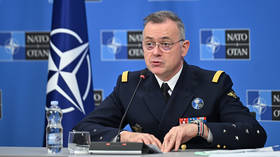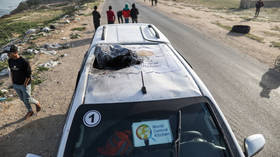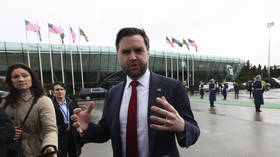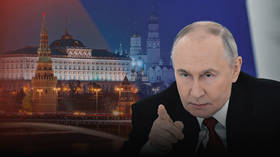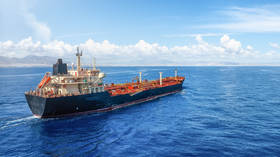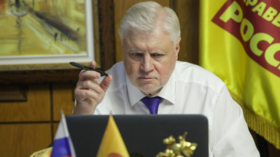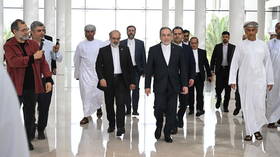Syrian split a real danger due to wars within war
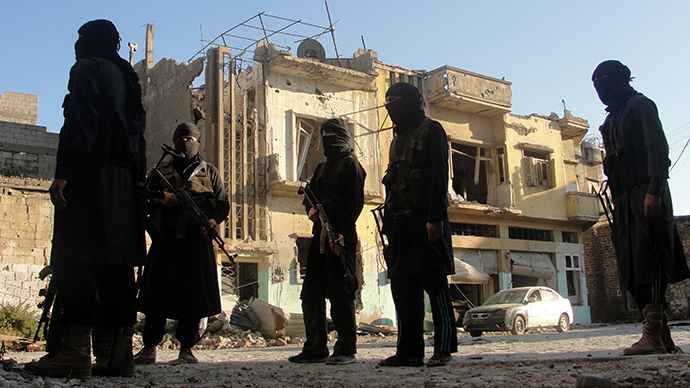
Syria could end up divided, as was Libya to some extent and other countries, as it is really several wars fought between Iran and Saudi Arabia, Sunni and Shia forces, and the US and Russia, Phyllis Bennis from the Institute for Policy Studies told RT.
RT:A career CIA officer comes out with a warning that the fall of President Assad might have devastating consequences. Washington should take his words seriously, surely?
Phyllis Bennis: I think his statement is very much tied to the debate that’s on the way within the administration on whether or not to send weapons to some faction within the rebel armies in Syria. There are many people who have no access to classified information that Michael Morel presumably has access to. It has been clear that sending weapons on both sides or on either side is going to make the situation worse and not better. There have been rumors that Morel actually is opposed to the emerging position of the administration which seems to be leaning more towards sending some kind of weapons. This probably was designed deliberately to undercut that position within the administration and sure up those who are saying “No, sending weapons is a really bad idea.”
RT:How is the situation changing on the ground? Al-Qaeda-linked groups seem to be getting more of strength in Syria. How much is that affecting the picture?
PB: It’s been true for a while that the most powerful
militarily of the opposition forces has been the Islamic forces,
particularly, the Al-Nusra-Front, which is allied consciously
with Al-Qaeda. The other parts of the Free Syrian army have not
been able to carry out that kind of military attacks that the
Al-Nusra Front has. On the other hand in the recent months there
has been a reversal of the earlier trend where the opposition was
actually gaining territory. Now the government of Bashar Assad
and his military seem to be winning on the ground, they seem to
be gaining more territory and that has led to a pullback of some
of the forces within the Obama administration who are encouraging
to arm the rebels. They are looking at the possibility that if
the regime is gaining more power that it could become a much
worse fighting level on the ground and that would be disastrous
in terms of civilian casualties, already over a 100,000.
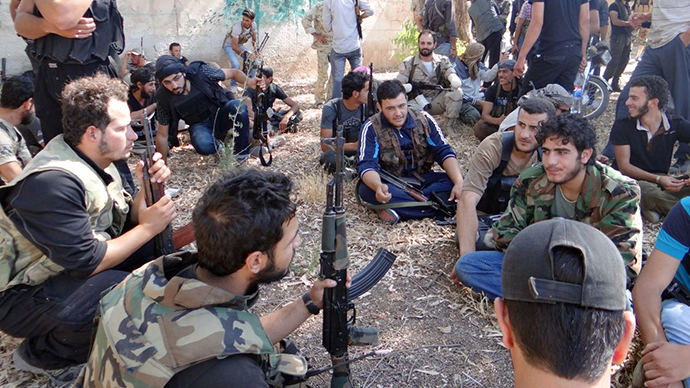
RT:How come they can be sure those weapons won’t fall into the hands of Islamists, radicals, the wrong people?
PB: That’s the problem. They can’t. Despite all of the assurances of the various representatives of the Free Syrian Army or the National Syrian council, who say “We will make sure they don’t get in their hands because we will keep receipts.” Receipts are not going to make it when one force has the capacity militarily to overcome the other force. They can’t make that kind of a guarantee that they won’t fall into those hands, just as they did in Afghanistan throughout the years that the US was fighting against the Soviet Union.
What I think we have to look out for, if we are serious about wanting to reduce the level of fighting and not increase it, there has to be a call for an absolute arms embargo on all sides. Certainly there has to be continued pressure on the United States and its allies in the region to stop their shipping arms to the rebels. There also needs to be pressure on the Russian government and the government in Iran to stop sending new arms and repaired arms and other arms to the regime. That’s not making the situation any better, that’s making it worse.
RT:Al-Qaeda is saying that it wants to establish an independent state in the North. We have got other fractions saying that they want to get a foothold as well. What effect is this going to have on the West?
PB: I think there is a danger of division of Syria as we have seen on some degree in Libya and other countries. The fear of the west is less significant than what it means to the people of Syria. They are the ones who are paying the price right now, and unfortunately all the wars that are being fought out, the war between Iran and Saudi Arabia, the war between Sunni and Shia forces, the war between the US and Russia. All of these wars are being fought to the last Syrian, and it’s the people of Syria who are going to pay and are continuing to pay the highest price.
Certainly there will be challenges for the West if there is another permanent strong hold of Al-Qaeda some place like Syria and the danger of Al-Qaeda or other unaccountable forces that have no commitment to the International Law getting in control of weapons of mass destruction that may exist inside Syria, such as chemical weapons. That would be disastrous, but it would again be more disastrous for the people for the people of Syria than for anybody else.
The statements, views and opinions expressed in this column are solely those of the author and do not necessarily represent those of RT.
The statements, views and opinions expressed in this column are solely those of the author and do not necessarily represent those of RT.


